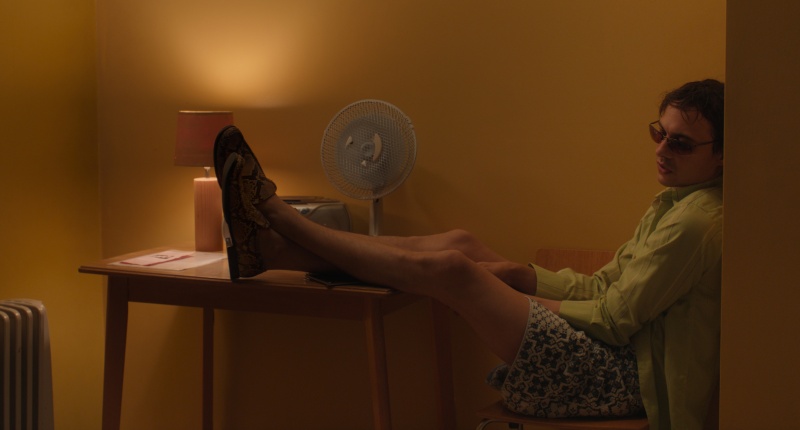Urchin
.
VERDICT: Harris Dickinson shows impressive directorial chops with the mental health drama ‘Urchin’, starring Frank Dillane.
Never one to shy away from projects that take big creative swings (see his roles in Babygirl and Triangle of Sadness), British actor Harris Dickinson is now taking it a step further by choosing to tell stories as a director, via the production company Devisio Pictures that he himself launched with Archie Pearch. And there’s great confidence in his feature debut Urchin, which bowed to acclaim in Cannes (winning the FIPRESCI Prize and the Best Performance award in the Un Certain Regard section), and looks set to make a name for itself on the international arthouse circuit beyond the festival realm.
Frank Dillane (son of Stephen), who won the acting prize on the Croisette, stars as Mike, a troubled youth who’s living on the streets and resorting to all sorts of strategies to get by on a daily basis. (Dickinson, who wisely chose to cast actors who are away from the spotlight, appears only briefly in front of the camera, as a friend with a similar situation). At one point, Mike’s drug-fueled desperation leads to a very violent incident that lands him in jail. Upon release, he pledges to improve himself by entering rehab and finding a job that should help him towards a path of stability. Whether that path will remain within reach, given Mike’s past, is a different matter.
Dickinson’s empathetic direction and Dillane’s thoughtful, nuanced performance provide the film with its main dramatic thrust and emotional centerpiece. While never downplaying the severity of Mike’s actions, Urchin relies on his portrayer’s careful approach to playing an individual with fragile mental health to make the protagonist’s journey a compelling one. We root for him to get somewhere better in life, while understanding the road to redemption is a steep one.
That road is paved with well-rounded supporting characters and a great sense of location, with echoes of the down-on-their-luck narratives in Andrea Arnold’s films. But Dickinson, being an ambitious filmmaker, never sets out to merely emulate one of his esteemed peers, and therefore sprinkles his debut with other influences, most notably Jonathan Glazer when it comes to a handful of intriguingly enigmatic dream-like sequences. These may look a bit too polished in contrast with the more naturalistic sheen of the rest of the film, but they do add an interesting thematic layer and highlight the first-time director’s willingness to put it all out there as a calling card.
And then there are the grace notes, the moments where the disparate elements actually coalesce in perfect balance to create something in between worlds, perhaps the perfect distillation of Mike’s fluctuating state of mind. In the film’s most unexpectedly affecting scene, while under the influence, the protagonist and three new acquaintances partake in an almost hypnotic dance, which the viewer observes while Desireless’ Voyage, voyage and its timeless melancholy play on the soundtrack. It’s the quintessential encapsulation of what appears to be a spiritual journey, carried out by someone who may however be doomed to remain still in the place – physical and mental – that his choices put him in.
Much like its main character, the film is sometimes caught in between different moods and modes. Unlike him, though, it generally finds a way to get back on its feet and stick the landing, using a young man’s path of self-inflicted hardships to chart a very promising course for Dickinson as a director, devoid of vanity and actually imbued with a sense of dramaturgic purpose.
Director, screenwriter: Harris Dickinson
Cast: Frank Dillane, Megan Northam, Amr Waked, Karyna Khymchuk, Shonagh Marie, Harris Dickinson
Producers: Archie Pearch, Scott O’Donnell
Cinematography: Josée Deshaies
Production design: Anna Rhodes
Music: Alan Myson
Sound: Steve Single
Production companies: Devisio Pictures, Somesuch, BBC Film, BFI, Tricky Knot
World sales: Charades
Venue: San Sebastián International Film Festival (Zabaltegi Tabakalera)
In English
99 minutes

